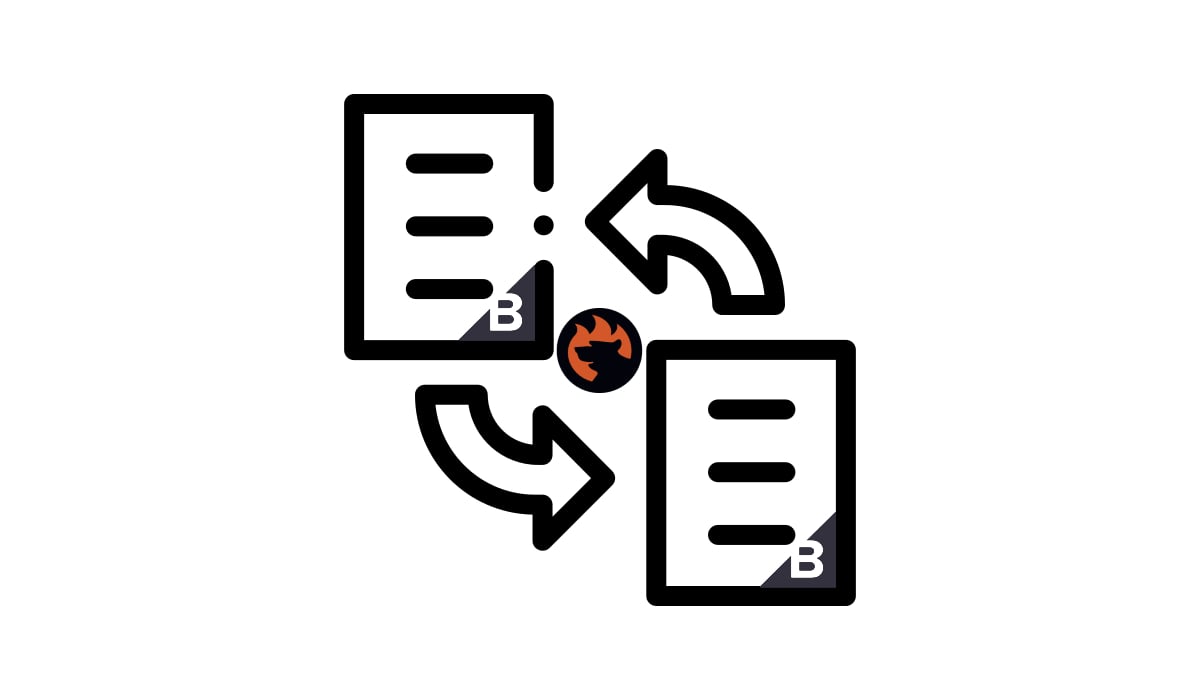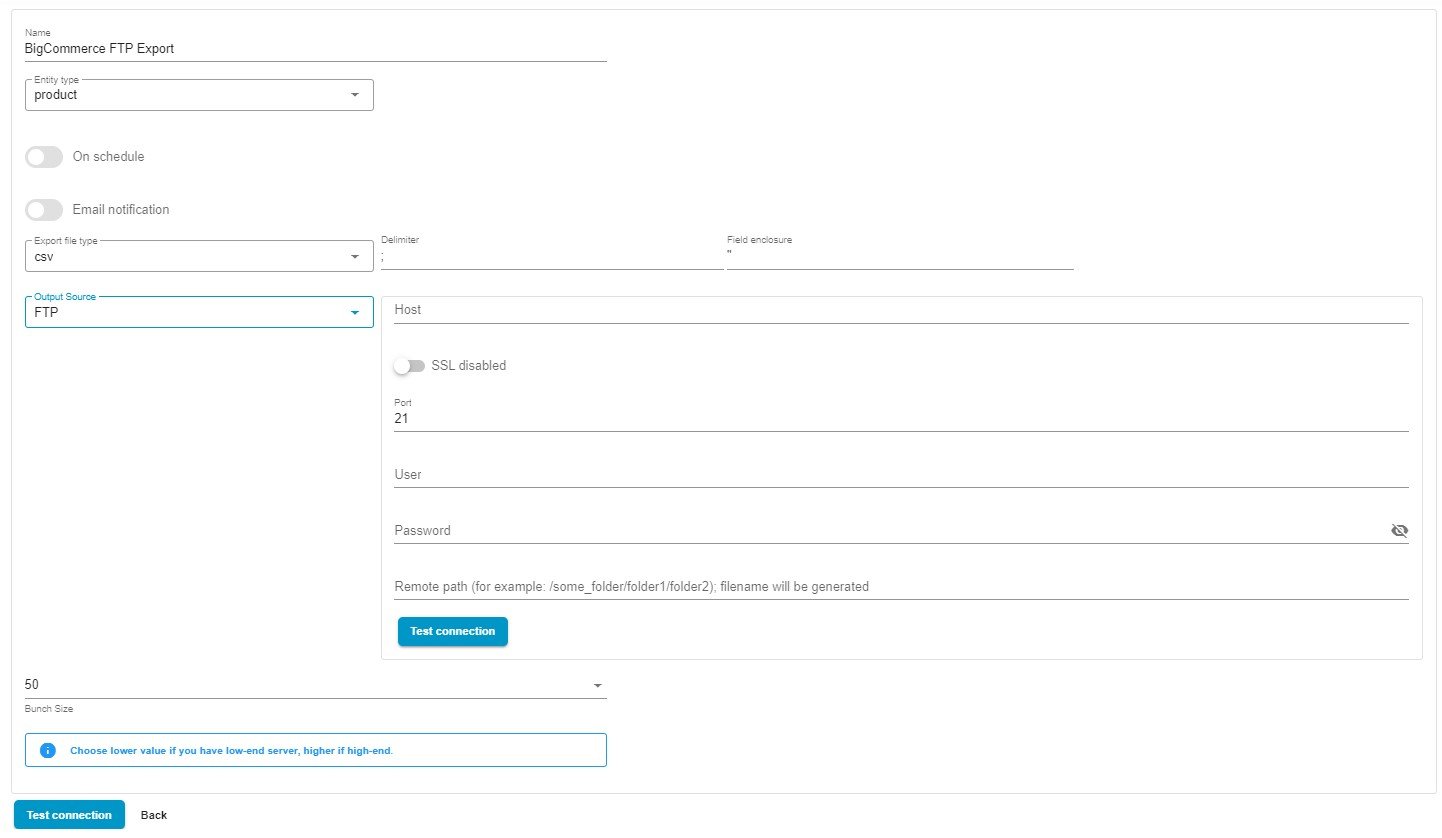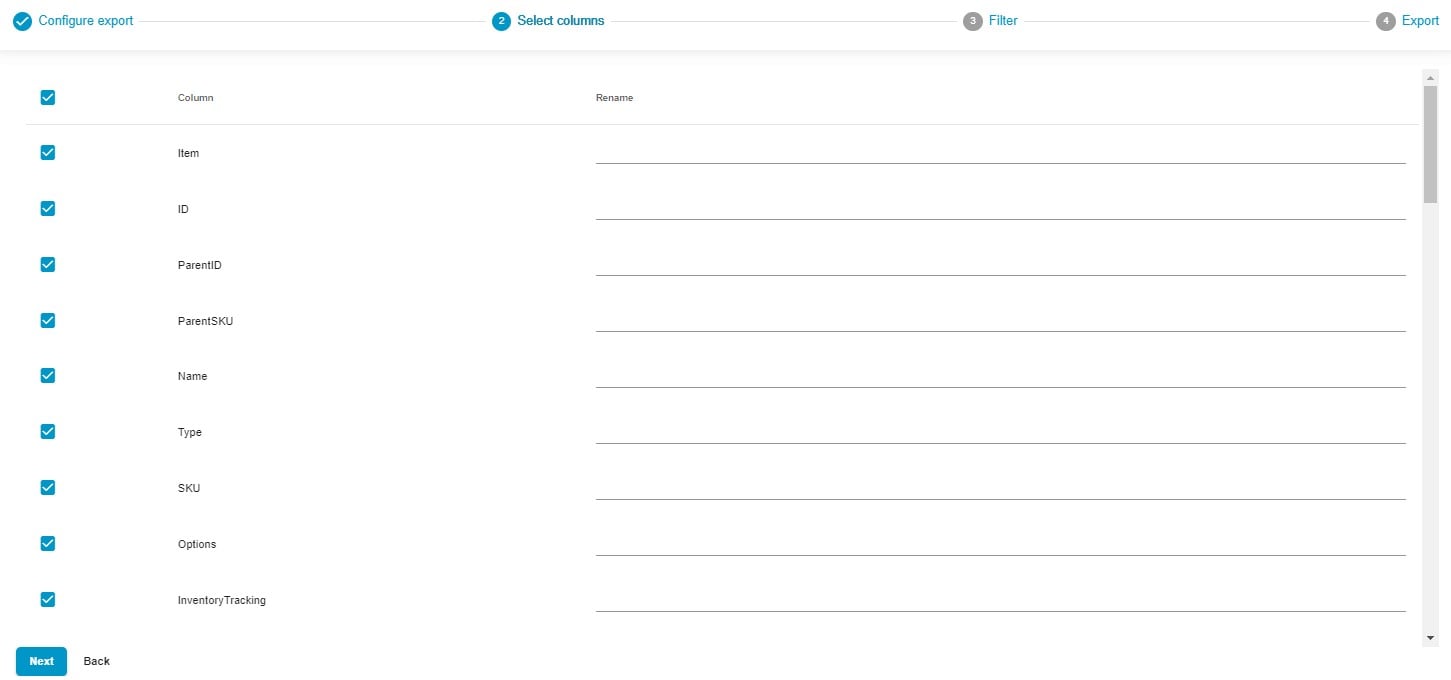How to Export Files from BigCommerce via FTP

We’ve already described how to import files to BigCommerce via FTP. Today, you will learn how to do the opposite – export BigCommerce customers, products, and orders to a remote server using FTP. By default, the platform only lets you run the export procedure and then download a CSV file from your e-commerce storefront. If you provide your partners with regular updates, this procedure may consume much time. However, there is a more efficient way to exchange data – BigCommerce FTP export. You will need the to implement this functionality. In the following tutorial, you will learn how to export files from BigCommerce via FTP. Also, don’t forget to go over our BigCommerce Cookbook for other helpful hints.
Table of contents
Default BigCommerce Export
In a nutshell, BigCommerce export is quite straightforward: You initiate the transfer and manually download the exported file.

Every time you need to provide a third party with an update, you face the same procedure: start the export, get the update, and re-upload it.
However, the Firebear Import & Export Tool introduces a better way to export data from BigCommerce – via FTP.
What is FTP
FTP stands for File Transfer Protocol. It is a network protocol that helps you transfer files from one host to another via a TCP-based network. In other words, it permits file transfers via the Internet.
FTP operates as follows: It establishes a link that connects two computers that are attempting to communicate with one another. The transfer is totally automated, making it ideal for everyday file transfers in BigCommerce. Because you can’t utilize this strategy with the standard BigCommerce tools, let’s look at an alternative.
How to export files from BigCommerce via FTP
The Firebear Import & Export Tool application introduces FTP file transfers to BigCommerce. Go to Apps -> My Apps -> Firebear Import & Export Tool -> Export. Click the New Profile button.
The Configure export screen appears. Follow these steps to configure your BigCommerce 6 FTP export:

- Specify your profile name (e.g., BigCommerce FTP Export);
- Select an entity you want to export (e.g., products);
- Configure a schedule of updates if applicable;
- Configure email notifications if necessary;
- Select your file format. Note that you can export data from BigCommerce via FTP as CSV, XML, or XLSX files. Alternatively, you can transfer the necessary information to a Google Sheets spreadsheet;
- Choose FTP as your export source (you can also export data to Google Drive and Google Sheets):

- Provide your host;
- Enable/disable SSL;
- Provide your port;
- Specify a user email to get access to the remote file source;
- Set the corresponding password;
- Specify the remote path to store your update file;
- Test the connection to make sure you’ve provided the correct credentials.
- Choose a bunch size for your file export: specify a lower value for a low-end server.
Click Continue to proceed to an export mapping screen of your BigCommerce FTP export. Replace the default BigCommerce column titles with any custom names your partner requires by specifying new values in front of the default ones.

Next, the app transfers you to a Filter screen. You can create multiple filters here to narrow down the selection of exported data.
Click the Save & Close button to save your BigCommerce FTP export profile for further use. When you click the Export button at the bottom, the app launches the update transferring your data from BigCommerce via FTP.

You can read more about the enhanced BigCommerce export in our Firebear Import & Export Tool Manual.
Other Features
With the Firebear Import & Export Tool, BigCommerce shop owners get the ability to address multiple issues associated with import and export procedures. Unlike the standard data transfer tools, this app supports multiple file formats and sources, schedules, notifications, etc. Its important aspects that are already available or soon will be added include:
- Full product import and export with custom properties (attributes);
- Customer import and export with addresses;
- Orders export;
- Product properties mapping and mapping presets;
- Import and export schedules;
- Support for CSV, XLSX, and XLSX file types;
- Google Sheets import & export;
- Direct file uploads;
- FTP/FTPS uploads;
- Support for Google Drive uploads.
You can find more information about the product here:
